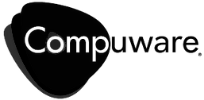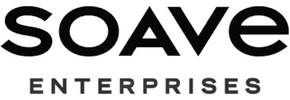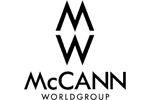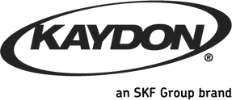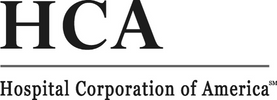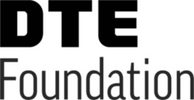
Ever notice how you have to go back and make changes to your website when Google makes an algorithm change or adds a new algorithm? Some of the most significant changes that have taken place since 2008 have had an impact on not only website changes, but how a business markets itself on the Internet.
Google makes many changes over the course of a year, and trying to address each and every one of them is not necessary. Many of the changes are designed to hinder cheaters and fraud websites from abusing the system and getting to the top of the search results.
Conceptually, it is important to understand the impact on your business when these changes are made.
It is equally important to understand that web marketing has no endpoint and change is inevitable. “Expect change and accept change” is something I have presented in years past. Trying to fight the dynamic and fluid environment of the web is not logical for your business, nor is it fruitful use of your time. Keep emotion out of it, press forward and adapt to the changing environment.
We will review a few of the more prominent algorithm changes by Google and what organic marketing impact it has had on business. Advertising related topics are not being covered in this discussion.
Google Algorithm on Content Relevancy
- The Change
Around 2008 this started with the Content Relevancy algorithm bringing upon per-page optimization. The time of optimizing an entire website using the same meta descriptions, meta keywords and titles for all web pages of a website becomes obsolete. - The Marketing Impact
Optimizing individual pages based on their unique information meant any inside page could be ranked and shown in the search results. This also meant the visitor entry point to a company website was no longer the home page where calls to action were set up. Instead, all pages of the website needed to be treated like the home page and have calls to action visible to the visitors.
This particular change is not something a technical web developer or even a creative designer would have picked up on. Rather, a marketer is necessary to understand how to interpret these changes and lead the business in the right direction.
Google Algorithm on Notable and Trusted Brands
- The Change
In 2009, Google released a lesser-known algorithm called, Vince. This algorithm is about brand validation to determine if a brand can be trusted. While this algorithm was designed to weed out cheaters and fraudulent websites, it imposes marketing work that is labor intensive for all businesses.Let’s first take a look at Wikipedia, because their editors follow a very similar process if you want a web page article on Wikipedia about your company.On Wikipedia, “notability” is a benchmark used by editors to decide whether a topic can have its own page in Wikipedia. Information on a Wikipedia topic must be verifiable along with reliable third-party sources. Wikipedia’s idea of notability uses this standard to avoid in-discrimination of topics. We have to understand that determining notability does not necessarily depend on things such as fame, importance, or popularity. Although, fame, importance, and popularity do tend to have more reliable third party sources to verify and validate the information.
As you can imagine, anyone taking notice of the Vince algorithm immediately cried foul play. Many people took this algorithm to favor big brands and to their benefit, yes, larger brands started to show up more in the search results over smaller brands. However, this did not mean foul play on the part of Google. Rather, it meant smaller brands needed to do more to validate themselves in verifiable and trusted methods.
- The Marketing Impact
First and foremost, multi-channel marketing becomes important. You have to get out on the web to market your business through different channels, which include editorial articles, news releases, press releases, video, documents, social media marketing, infographics, and the list can go on.This means more labor time to prepare content, to manage the distribution of this content, and to engage in the web beyond just paying for advertising.It just so happens, that by engaging in branding your business through multiple marketing channels, you increase how people view the authority of your business as a trusted entity and generate more traffic from different sources beyond search engines.
For references on the above section you can view:
- Matt Cutts Video, March 2009, http://youtu.be/LMfWPWUh5uU
- Search Engine Watch, August 2013, http://searchenginewatch.com/article/2288128/Vince-The-Google-Update-We-Should-Be-Talking-About
- Wikipedia on Notability, http://en.wikipedia.org/wiki/Wikipedia:Notability
Google’s Algorithms Let The Zoo Animals Take Over
- The Changes
Jumping forward to 2011 – 2013 we have Penguin (link quality) and Panda (quality website content) in which there is version 1.0 and 2.0 that have been released.http://en.wikipedia.org/wiki/Google_Penguinhttp://en.wikipedia.org/wiki/Panda_algorithm
The theme with both of these algorithms is about quality over quantity. Google has a list of questions it raises when determining what denotes quality.
http://googlewebmastercentral.blogspot.com/2011/05/more-guidance-on-building-high-quality.html
However, if you look through the list of these questions you will find they are very subjective based on visitor perception when they are already visiting your website. The real question is how does quality impact your website’s ranking position in the search results based on logical mathematical equations that Google can determine?
If this wasn’t confusing enough for most business owners, the more recent Hummingbird algorithm now goes down the path of interpreting what the person searching wants and may not necessarily display a direct match. Yes, this now puts keywords into a whole new light as we focus on “conversational search”.
http://www.huffingtonpost.com/don-dodds/an-seo-guide-to-the-google_b_4104521.html
- The Marketing ImpactWhen it comes to Penguin, it is about having quality websites with links back to your website. This does mean someone has to have a good idea on how to determine quality websites based on the website’s metric such as Google Page Rank, Alexa Traffic Rank, volume of pages indexed, and volume of links on the web. Having more quality in quantity of links will be more valuable and thus means someone actually has to research the information.
When it comes to Panda, the recommendation is about the web page’s Readability Score. The Flesch-Kincaid and Flesch Reading Ease are two methods of determining readability scores.
http://en.wikipedia.org/wiki/Flesch%E2%80%93Kincaid_readability_tests
The more the web page can cater to the general public, the more likely it will meet a quality level based on a mathematical equation.
When it comes to Hummingbird, this basically is a new search engine for Google. It does mean your web pages need to be optimized around conversational search. As people continue to search based on a longer sentence, particularly with mobile devices, the more your web pages need to be revised based on entire sentences instead of individual keywords or key phrases.
What To Do About Google Algorithm Changes
The bottom line is, businesses need professional help to manage their website, the marketability of the website, and businesses brand marketing.
While internal staff is capable of executing the tasks of the process, they do not gain the experience a professional firm can provide working across multiple customers and industries. Internal staff tend to become stagnant in their knowledge as they are single focused.
A financial factor comes from businesses using their financial resource inefficiently because they are either under or over reacting to the changes they don’t really understand. The reactions, absent proper knowledge and objectivity, are focused on wanting revenue to not slip or needing revenue to pay the bills. In fact they are making their situation worse.
The environment of change is rapid. Someone has to be able to interpret how these changes are affecting the short term, while planning how things need to move for the long term. Understanding the history becomes very important while expecting change, accepting change, and becoming an early adopter of new ideas. There is no room for the status quo when it comes to Internet marketing and adopting changes early is important.




